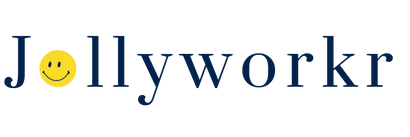Context first!
The progression of your employees' professional career and organisation depends greatly on how often they engage in CPD: continuous professional development. Without it, they may struggle to keep up with the ever-changing world of work.
Ongoing learning enables a level of growth that separates the average Joe from the truly outstanding. So if you’re looking for a way to reach greater success for your team, CPD is a proven route.
What is CPD?
Continuing Professional Development (CPD) is the process of developing professional skills and knowledge through interactive, participation-based or independent learning. It enables learners to proactively develop their professional capabilities through certified learning or self-guided learning methods.
It involves setting objectives for short and long-term progression with a structured and goal-specific plan. People engaging in CPD need to keep records of any knowledge attained and progress made for the purpose of reflecting on their learning and for showcasing skills, and sometimes as evidence of having undertaken CPD.
Development should build on technical and non-technical skills, so learners gain the expertise and understanding required to approach professional situations from various angles.
Why is CPD important?
Many professions have set requirements for ongoing CPD, where it is necessary for individuals to prove they are capable of adhering to current essential standards – such as legal, medical, and accounting roles. The Chartered Institute of Housing, for example, requires it's members to undertake 20 hours of CPD each year.
All our courses are fully accredited by the UK's leading accreditation service - The CPD Group
But beyond that, CPD helps people retain a consistent set of high quality, relevant skills and knowledge throughout their professional life. The best part is that CPD puts learners in a favourable position to demonstrate new knowledge, work to impressive standards, and progress in their career.
CPD benefits for the learner:
- It refines personal skills and intellect and helps to plug any knowledge gaps.
- Keeps academic and practical qualifications up to date – keeping skills relevant is integral in today’s fast-moving world, where rapid progression can quickly lead to previous learning becoming obsolete.
- Opens pathways to career progression or potential redirection, including achieving higher salaries and better job security.
- Enhances the ability to regularly learn and improve – employees learn quicker as they become acquainted with the process and will become better independent learners.
- Demonstrates ambitiousness, aptitude, and a dedication to self-improvement to current and prospective employers and clients.
- Provides valuable examples and scenarios for showcasing professional achievements and growth in CVs, cover letters, and interviews.
- Reduces feelings of uncertainty or worries about change – CPD gives employees a plan for future aspirations and the ability to readily adapt.
- Promotes independence – self-directed CPD requires employees to consciously engage in learning activities and follow their own plan, while some structured CPD activities can benefit from them engaging in further research and study.
- Continuous professional development can also be an excellent self-motivation tool, as it reminds employees of their achievements and progression. Plus, its flexibility and diversity – in terms of the different forms of CPD learning available – gives them an opportunity to find a learning approach that fits them best.
CPD benefits for the business:
- Ensures that standards throughout the company are consistently high.
- Improves efficiency and productivity with highly skilled and motivated staff.
- Enhances the business’s reputation among customers and clients as well as potential employees.
- Promotes a healthy learning culture.
- Improves employee retention as employees feel valued and loyal to the company.
- Provides a useful benchmark for annual reviews and appraisals.
- Enables the company to positively react and move with current trends and shifts in the industry.
To achieve these benefits, businesses should always support employees’ continuous personal development and allow equal access to learning opportunities.
It’s also important that learners reflect on their CPD learning. It is the most crucial stage of the CPD process, as it enables them to determine what worked and where their strengths lie, and how they can plan and improve future CPD activities. Self-reflection is used by those who are truly goal-oriented and open to real growth.

